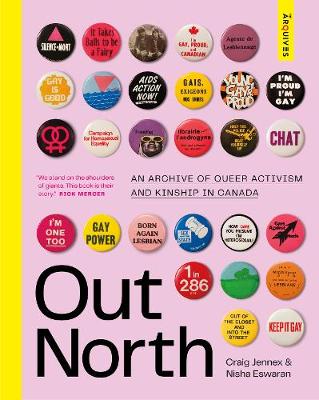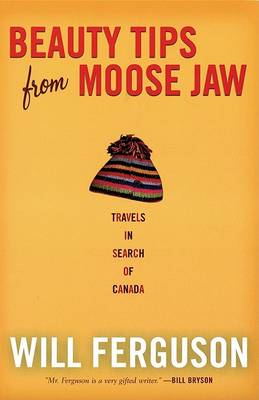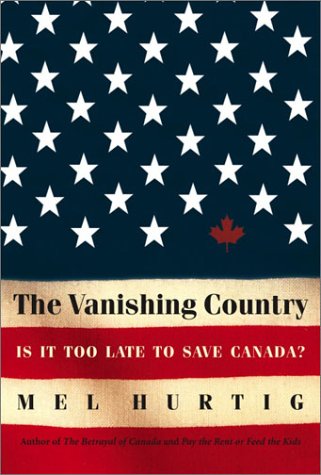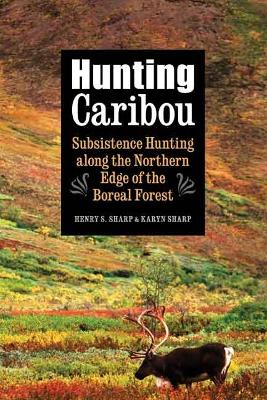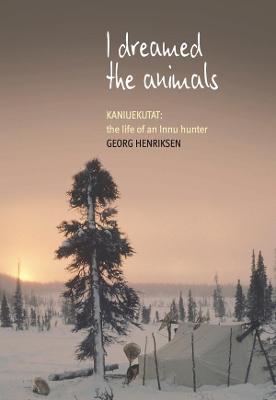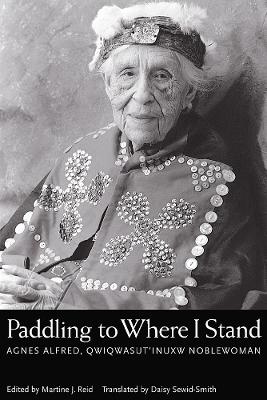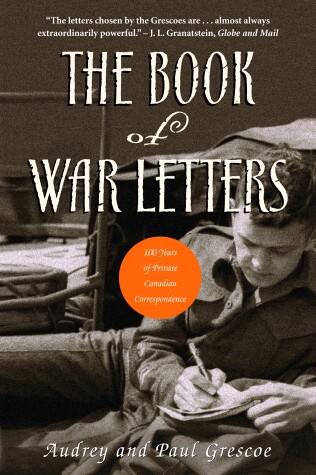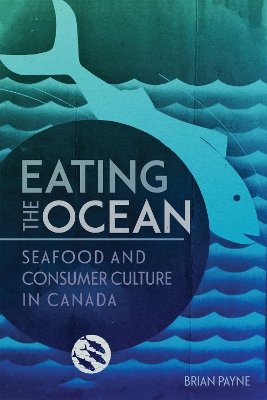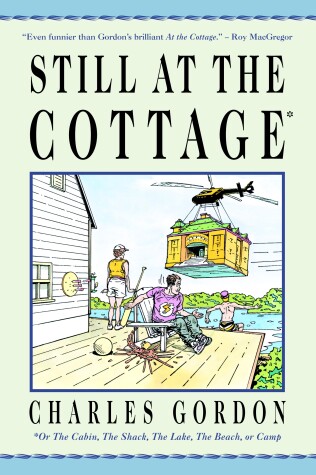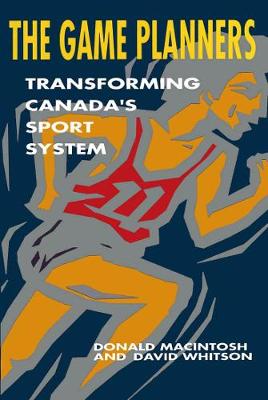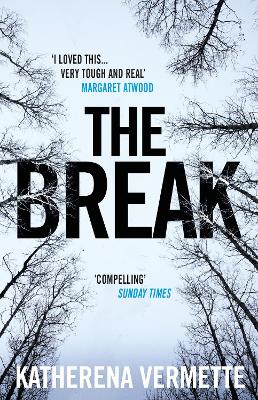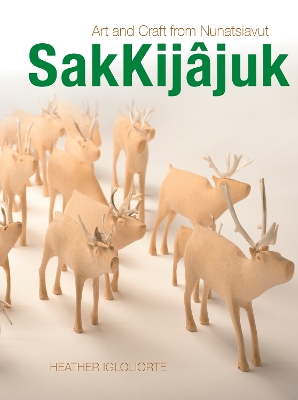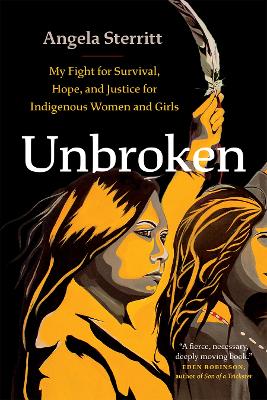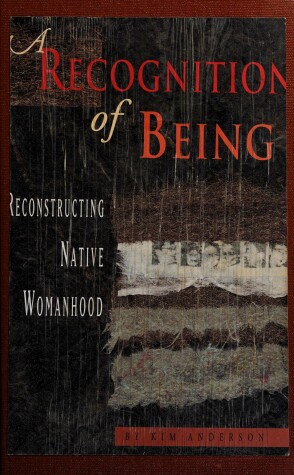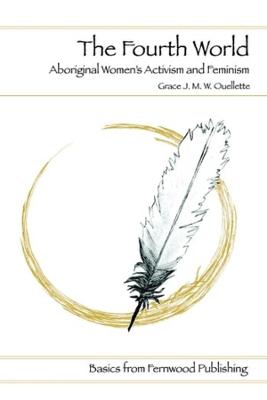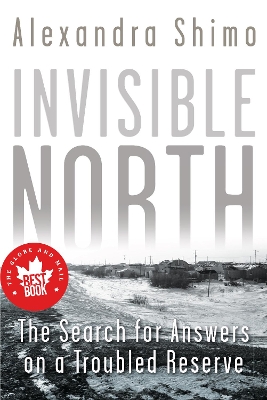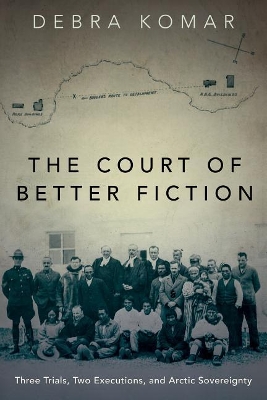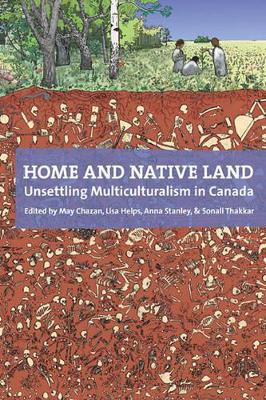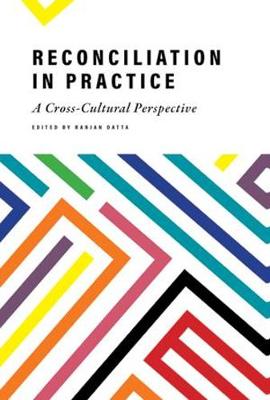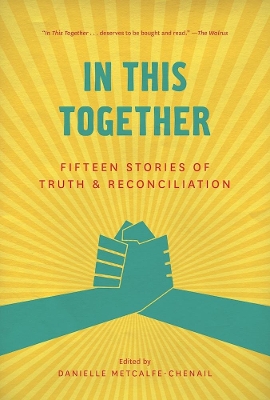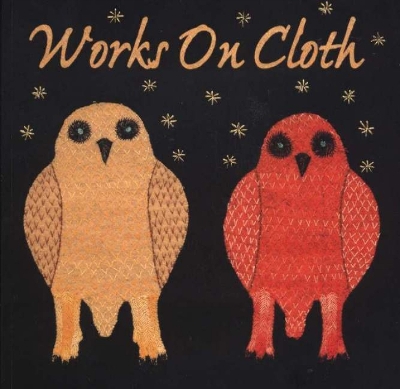The ArQuives, the largest independent LGBTQ2+ archive in the world, is dedicated to collecting, preserving, and celebrating the stories and histories of LGBTQ2+ people in Canada. Since 1973, volunteers have amassed a vast collection of important artifacts that speak to personal experiences and significant historical moments for Canadian queer communities. Out North: An Archive of Queer Activism and Kinship in Canada is a fascinating exploration and examination of one nation's queer history and...
Will Ferguson has spent the past three years criss-crossing Canada. In a helicopter above the barrenlands of the sub-arctic: in a canoe with his four year-old-son: on board seaplanes and along the Underground Railroad, Ferguson's travels have taken him from Cape Spear on the remote coast of Newfoundland to the sun-dappled streets of Olde Victoria. Through his engaging and witty prose style he takes us on a journey of discovery through Canada's hidden history and landscape. Funny, poignant and in...
Is it all over for Canada? There are a number of thoughtful people who think so. Mel Hurtig, however, believes there is still a chance to reassert Canadian independence. But first, Canadians need to understand how much has been lost. Our politicians are not telling us. Our business leaders certainly are not telling us. And our media definitely are not telling us. The border dividing Canada and the United States has never been more fragile. Canada is vanishing. The evidence is available to those...
Denésuliné hunters range from deep in the Boreal Forest far into the tundra of northern Canada. Henry S. Sharp, a social anthropologist and ethnographer, spent several decades participating in fieldwork and observing hunts by this extended kin group. His daughter, Karyn Sharp, who is an archaeologist specializing in First Nations Studies and is Denésuliné, also observed countless hunts. Over the years the father and daughter realized that not only their personal backgrounds but also their discip...
This is Kaniuekutat's book. In it, he tells the story of his life and that of Innu culture in the northern parts of Labrador. The pages of this book are filled with the voice of Kaniuekutat giving his account of an Innu hunter's life and the problems and distress that have been caused by sedentarization and village life. Kaniuekutat invites us to see Innu society and culture from the inside, the way he lives it and reflects upon it. He was greatly concerned that young Innu may lose their tradi...
Paddling to Where I Stand
The Kwakwakawakw people and their culture have been the subject of more anthropological writings than any other ethnic group on the Northwest Coast. Until now, however, no biography had been written by or about a Kwakwakawakw woman. Paddling to Where I Stand presents the memoirs of Agnes Alfred (c.1890-1992), a non-literate noble Qwiqwasutinuxw woman of the Kwakwakawakw Nation and one of the last great storytellers among her peers in the classic oral tradition. Agnes Alfred documents through my...
The second volume in a 3-book series Duress – the extreme experience war produces – brings out the most remarkable human qualities, and letters written in wartime contain some of the most intense emotion imaginable. This anthology includes letters that date as far back as the Boer War (which began in 1899) and extend up to 2002, when Canadian peacekeepers served in Afghanistan. Between are letters from the First and Second World Wars, the Korean War, and a number of peacekeeping missions. It co...
Eating the Ocean (La collection Louis J. Robichaud/The Louis J. Robichaud)
by Brian Payne
During the first half of the twentieth century, Canadian fisheries regularly produced more fish than markets could absorb, driving down profits and wages. To address this, both industry and government sought to stimulate domestic consumption via increased advertising. In Eating the Ocean Brian Payne explores how government-funded marketing called upon Canadian housewives to prepare more seafood meals to improve family health and aid an industry central to Canadian identity and heritage. The goal...
In 1989, Charles Gordon wrote a book about the joys of life at the cottage called, well, At the Cottage. It was a huge success, selling thousands of copies every year since then. A copy sits, dog-eared and smeared with sunscreen, in every cottage worthy of the name, right beside the bird book with the missing pages. Now, showing the same creative spirit when it comes to names, comes Still at the Cottage. Readers will be surprised to learn that some things have changed in cottage country, which...
The Game Planners studies the policy-making process in six Canadian national sports organizations, each of which deals with a different high-profile Olympic event. The authors argue that the creation of a "high-performance" sport system in Canada is due to pressure from three areas: the Canadian government, the physical education profession, and the sports community.
Jacqueline Beaudouin-Ross examines the evolution of form or silhouette in nineteenth-century feminine dress, applying theories developed by art historians such as Henri Focillon and Heinrich Wofflin to demonstrate that an inner dynamic of change appears to be responsible for the evolution of contour in fashionable attire in the nineteenth century. Beaudouin-Ross evaluates the dissemination of fashion images in Montreal to show to what extent Montrealers were "fashionable" and reveals that fashio...
A GOVERNOR GENERAL'S LITERARY AWARD FINALISTLonglisted for the Dublin Literary Award 2018Crime Book of the Month, Sunday Times, February 2018'I loved this... very tough and very real.' - Margaret AtwoodWhen Stella, a young mother in an Indigenous community, looks out her window one wintry evening and spots someone being attacked on the Break - a barren field on an isolated strip of land outside her house - she calls the police. By the time help arrives, all that is left of the struggle is blood...
In Celebration of Our Survival
For years, aboriginal people have been studied, observed and written about, usually by members of the non-native community. The present volume has been written, compiled and edited by aboriginal peoples from British Columbia who, in telling their own stories, celebrate the survival of the distinct cultures of the First Nations people in the face of decades of colonization and attempts at assimilation.
Winner, 2018 Canadian Museums Association Award of Outstanding Achievement in Education Shortlisted, 2018 Atlantic Publishers Marketing Association Best Atlantic Published Book Award Nunatsiavut, the Inuit region of Canada that achieved self-government in 2005, produces art that is distinct within the world of Canadian and circumpolar Inuit art. The world's most southerly population of Inuit, the coastal people of Nunatsiavut have always lived both above and below the tree line, and Inuit arti...
"A remarkable life story. . . Angela Sterritt is a formidable storyteller and a passionate advocate."—Cherie Dimaline, author of The Marrow Thieves "Sterritt's story is living proof of how courageous Indigenous women are."—Tanya Talaga, author of Seven Fallen Feathers and All Our Relations Unbroken is an extraordinary work of memoir and investigative journalism focusing on missing and murdered Indigenous women and girls, written by an award-winning Gitxsan journalist who survived life on the s...
Over 15 years ago, Kim Anderson set out to explore how Indigenous womanhood had been constructed and reconstructed in Canada, weaving her own journey as a Cree/Metis woman with the insights, knowledge, and stories of the forty Indigenous women she interviewed. The result was A Recognition of Being, a powerful work that identified both the painful legacy of colonialism and the vital potential of self-definition.In this second edition, Anderson revisits her groundbreaking text to include recent li...
An examination of the cultural assumptions embedded in the theories propounded by white feminists, this important contribution to fourth-world theory provides a distinctive perspective on the dichotomy between Eurocentric and Aboriginal thought. Challenges to the hegemony of contemporary feminist theory are extended to facilitate consideration of self-government on Aboriginal terms. This thoughtful, culturally relevant analysis reconsiders the tacit resuppositions that have guided dominant femin...
A vivid first-person account of life on a troubled reserve that illuminates a difficult and oft-ignored history. Globe and Mail 100: Best Books of 2016 • The Hill Times: Best Books of 2016 • 2017 RBC Taylor Prize — Longlisted • 2017 BC National Award for Canadian Non-Fiction — Shortlisted • 2016 Speaker's Book Award — Shortlisted When freelance journalist Alexandra Shimo arrives in Kashechewan, a fly-in, northern Ontario reserve, to investigate rumours of a fabricated water crisis and docu...
In its rush to establish dominion over the North, Canada executed two innocent Inuit men. In 1921, the RCMP arrested two Copper Inuit men under suspicion that the two had murdered their uncle. Both men confessed to the crime through a police interpreter, though the "confession" was highly questionable. The Canadian government used the case to plant their flag in the north, but the trial quickly became a master class in judicial error. Correspondence among the key players reveals that the t...
"Home and Native Land" takes its vastly important topic and places it under a new, penetrating light - shifting focus from the present grounds of debate onto a more critical terrain. The book's articles, by some of the foremost critical thinkers and activists on issues of difference, diversity, and Canadian policy, challenge sedimented thinking on the subject of multiculturalism. Not merely 'another book' on race relations, national identity, or the post 9-11 security environment, this collecti...
Reconciliation in Practice
In 2015, the Truth and Reconciliation Commission released a report designed to facilitate reconciliation between the Canadian state and Indigenous Peoples. Its call to honour treaty relationships reminds us that we are all treaty people — including immigrants and refugees living in Canada. The contributors to this volume, many of whom are themselves immigrants and refugees, take up the challenge of imagining what it means for immigrants and refugees to live as treaty people. Through essays, per...
The release of the Truth and Reconciliation Commission's (TRC) findings and recommendations in the spring of 2015 was an immensely important day for the people of Canada. It marked the hopeful beginning of change-a change of thinking, a change of opinion, a change in understanding. But how do we begin? Chief Justice Murray Sinclair, chair of the TRC, says that the most common statement the commission heard from the public was: "I didn't know any of this, and I acknowledge that things are not wh...
Works on Cloth
